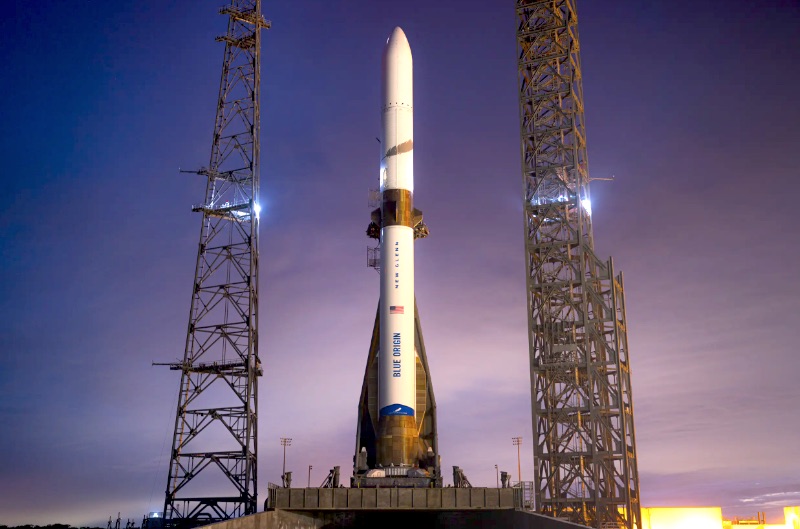Blue Origin Delays Launch from Cape Canaveral Due to Vehicle Subsystem Issue
By Space Coast Daily // January 13, 2025
Coverage of the launch can be seen on Space Coast Daily TV

BREVARD COUNTY • CAPE CANAVERAL SPACE FORCE STATION, FLORIDA — Blue Origin has announced the postponement of its scheduled launch from Cape Canaveral today.
The decision to stand down came after the team identified a vehicle subsystem issue that extended beyond the designated launch window.
Safety and precision remain top priorities for the aerospace company, prompting the delay to ensure all systems are fully operational before proceeding with the mission.
While the exact nature of the subsystem issue has not been disclosed, such measures are standard practice in the industry to mitigate risks and guarantee mission success.
The launch team is currently assessing the situation and evaluating potential opportunities for the next launch attempt.
Updates regarding the rescheduled launch date are expected once troubleshooting is complete and the system issue has been resolved.
Blue Origin’s commitment to excellence and safety underscores the complexities of space exploration. This delay highlights the rigorous checks and balances required for successful operations in this challenging domain.
Stay tuned for updates as Blue Origin provides further information on their next steps.
The launch will occur from Launch Complex 36 at the Cape Canaveral Space Force Station when conditions are expected to be favorable and the rocket’s trajectory will take it eastward over the Atlantic.
One of the key highlights of the mission is the planned landing of New Glenn’s first stage booster. It is set to touch down on Jacklyn, Blue Origin’s specially designed autonomous landing ship, ensuring the rocket’s reusability for future missions.
Blue Origin is starting the new year with anticipation as it prepares to launch its towering 320-foot New Glenn rocket for the first time from Launch Complex 36.

The company, founded by Amazon billionaire Jeff Bezos, has been building toward this moment for years. Named after John Glenn, the first American astronaut to orbit the Earth, the New Glenn rocket represents a leap forward for Blue Origin.
Unlike its smaller New Shepard rocket, which has been ferrying payloads and tourists to the edge of space since 2015, the New Glenn is designed for low-Earth orbit, deep space missions, and even lunar exploration.
Blue Origin recently completed a crucial hot-fire test of its seven BE-4 engines on December 27.
The successful engine trial was a major step forward for the New Glenn program, which has faced delays over the years. Blue Origin announced that the test met all objectives, clearing the way for the maiden flight, designated New Glenn-1 (NG-1).

The NG-1 mission will not carry a commercial payload but will instead transport a 45,000-pound mass simulator to test the rocket’s performance. The mission is a critical step toward certifying New Glenn for the U.S. Space Force’s National Security Space Launch (NSSL) program.
One of New Glenn’s key features is its reusability. After launch, the rocket’s 188-foot first-stage booster is expected to attempt a landing on Blue Origin’s marine vessel Jacklyn, which has been stationed at Port Canaveral since September.
Like SpaceX’s autonomous drone ships, Jacklyn operates without a crew onboard during recovery attempts.
The New Glenn rocket is designed to carry payloads of up to 45 metric tons to low Earth orbit and 13 metric tons to geostationary orbit, making it a direct competitor to SpaceX’s Falcon Heavy.
Blue Origin has already lined up customers, including Amazon’s Project Kuiper—a rival to SpaceX’s Starlink—and other government and commercial contracts.












